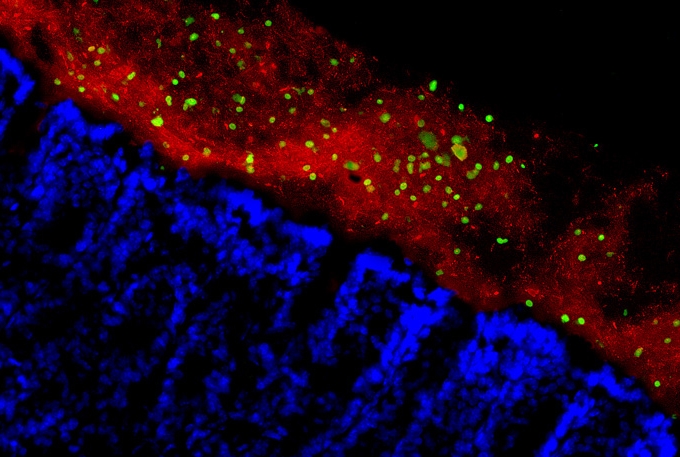Fungi that live in a healthy gut may be as important for good health as beneficial intestinal bacteria, according to new research conducted at Weill Cornell Medicine.
Scientists have known for quite some time that the so-called "good" gut bacteria in the intestines, known as commensal bacteria, are a key component of a healthy body. These bacteria are critical for proper digestive and immune system function. Recent discoveries, however, have indicated that other microbes, such as fungi and viruses, may also play a part in how the body handles inflammation.
"The focus has been gut bacteria for a long time," said Dr. Iliyan Iliev, an assistant professor of immunology in medicine and a scientist at the Jill Roberts Institute for Research in Inflammatory Bowel Disease at Weill Cornell Medicine. "But these bacteria share their space with fungi in the intestines, so we have to think about how the fungi can affect the human body as well."
In a study published May 26 in Cell Host & Microbe, Weill Cornell Medicine researchers found that disruption of the intestinal fungi of mice with antifungal drug treatment increases the severity of colitis and allergic airway disease. "This is evidence that a healthy intestinal fungal community definitely plays a role in immune response, both inside and outside the gut," Dr. Iliev said.
The researchers treated mice with common antifungal medications and then induced colitis, a condition characterized by inflammation in the colon. They found that the mice that received antifungal drugs developed more severe colitis than the untreated mice.
To test whether fungal disruption could affect immune response elsewhere in the body, Dr. Iliev and his colleagues again treated mice with antifungal drugs and then exposed them to household dust mites to create an allergic response in the lung. Fungal infections are actually known to worsen symptoms in severely asthmatic patients, so the investigators thought antifungal treatment might protect the mice. Instead, the treated mice developed more severe asthmatic symptoms. "Our results suggest that in addition to bacteria, a healthy fungal community is also important for regulation of immune responses throughout the body," Dr. Iliev said.
DNA analysis of the gut microbes present in the treated mice showed reduced populations of some fungi — which would be expected with antifungal treatment — but increased populations of others. Also, the researchers saw that bacterial populations changed as well—certain bacteria were found in decreased amounts from normal, others in increased amounts. "This result suggests that fungal and bacterial communities in the gut are co-dependent and that disruption of one community affects another," Dr. Iliev said.
Antifungal medications are widely prescribed to treat fungal infections throughout the body. These results suggest that researchers should take a closer look on the effects that those medications may be having.
"We know that antibiotic overuse can contribute to inflammatory disease," Dr. Iliev said. "Although antifungal medication remains the only treatment of choice against life-threatening fungal infections, these results suggest that antifungal drugs overuse may be having a similar effect on human health."
The National Institutes of Health supported this study through the grant DK098310.

